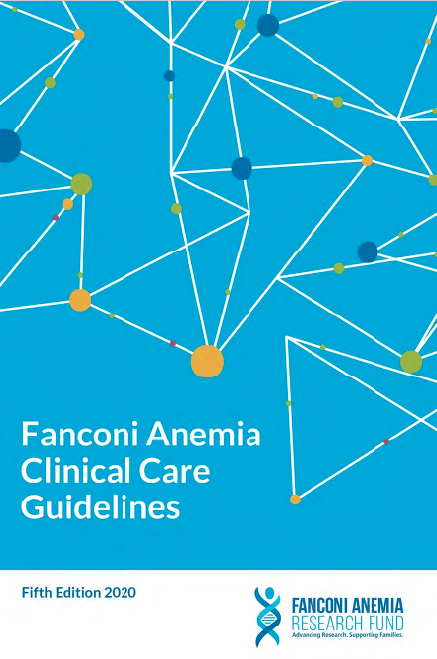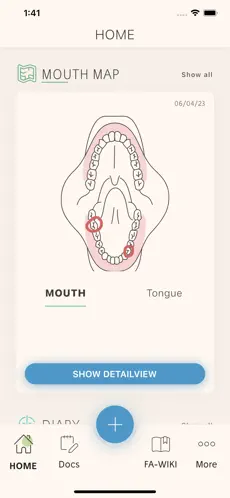Resources
This set of tools will evolve over time. We would like to have a conversation about what you find useful from here, and we very much want to hear any ideas you have for further resources we might be able to provide to the wider FA community.
We are just beginning to reach out to the medical establishment in Australia and New Zealand. As we build our understanding of our complex health system we hope to reflect that insight on these pages.

Fanconi Anemia Clinical Care Guidelines
Fanconi Anemia Clinical Care Guidelines, Fifth Edition, is a publication of the Fanconi Anemia Research Fund. The fifth edition is a revision of the fourth edition published in 2014. The contributing authors are physicians or clinical care providers with expertise in treating patients with Fanconi anemia (FA).
Chapter Updates
Chapters are updated on an ongoing basis. Please check for updates here:
Clinical Care
Appointments Excel Spreadsheet
People with FA see multiple medical specialists and other health and wellbeing professionals. This spreadsheet will help you to keep track of upcoming visits and the preparation for those visits.
A few tips:
- Make the spreadsheet specific to you. Delete or add columns for different health professionals who are relevant to you.
- Keep the spreadsheet up to date. After each visit, enter the details for the next visit.
- Check the spreadsheet in the preceding month (or whenever it’s the best time for you) so you don’t miss appointments.
Put the dates in your phone calendar as well and put a reminder at 1 week in advance of the visit date. You may need to ensure test results or referral letters are available for the visit. - To minimise scrolling over several years’ worth of data, hide the rows for the previous year/s
COVID-19 vaccine & Fanconi Anaemia
According to the Fanconi Anemia Research Fund (FARF), the best and safest way to protect yourself from the virus is by getting vaccinated. Individuals, with or without FA, should get the vaccine as soon as it is available to them, unless there is a strong reason not to, as reviewed with their own provider. This may include:
- If a patient has allergies to a vaccine component
- If a patient is currently undergoing transplant or had a transplant and has not started to be revaccinated
We strongly advise you and your family members to speak with your primary health care providers about whether and when to be vaccinated against COVID-19. Just like everything else with Fanconi anaemia, the risks and benefits for any medical decision should be weighed on a case-by-case basis and discussed with the patient’s treating physician.
The above advice was supplied by Fanconi Anemia Research Fund (FARF). The full article is available here.
FAexam app for iphone

FAExam is a powerful tool designed specifically for individuals with Fanconi anaemia (FA) who benefit from an intensive oral care program. This app provides the necessary guidance and resources to perform thorough oral self-examinations. Developed in collaboration with individuals with FA from all over the world, this app empowers users to take control of their oral care and improve their overall well-being.
Appointments Memory Jogger
We see a lot of doctors, often under stressful conditions. You may have things to tell the doctor and questions to ask. The doctor may have a lot to tell you. And then there’s the next appointment to lock in.
Make copies of this form and use one to take notes before and after each appointment. Start a folder for each specialty, or scan it into your files. If possible it’s best to have two people at appointments, with one taking notes.
Help with long-distance travel
The health system in all Australian states and territories and in New Zealand provides financial assistance for travel if you are forced to journey long distances to access the medical care you or your family members require.
Within Australia
The precise rules vary from state to state. Please use the following links to find the scheme which applies to you.


